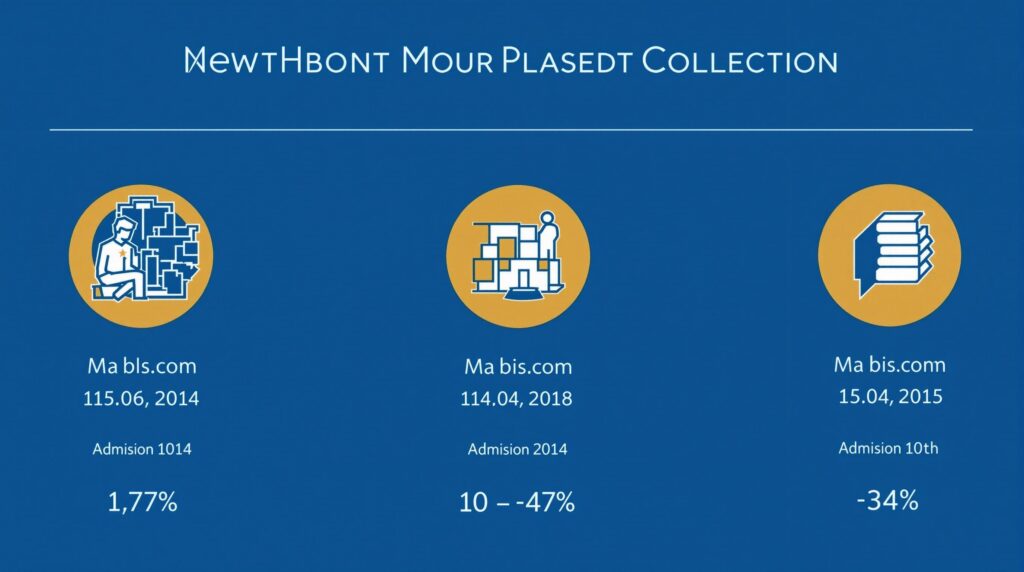The Rhode Island Foundation serves as a cornerstone for education and career advancement in the state, allocating millions in grants annually to support individual and organizational growth. In 2025, the foundation continues its commitment to addressing systemic inequities through strategic funding initiatives that empower Rhode Islanders to advance their education and careers.
Key Takeaways
- The RI Foundation awarded $87 million in grants to over 2,500 organizations in 2024, with education as a priority
- Applications must demonstrate commitment to diversity, equity, inclusion, and access to receive priority consideration
- Catalyst Grants offer up to $250,000 annually for three years for innovative collaborations
- Career Exploration Equity Grants provide $5,000 reimbursements for educational career initiatives
- The foundation’s 2025 scholarship allocation stands at $4 million across more than 100 scholarships
Rhode Island’s Education Funding Landscape
The Rhode Island Foundation has positioned itself as a major funding source for educational advancement in the state. With $87 million awarded in grants during 2024 alone, the foundation has demonstrated its commitment to fostering education and workforce development. This commitment aligns with Rhode Island’s broader education investment, including a $2.25 billion state budget for elementary and secondary education.
Educational attainment metrics show that 84.7% of Rhode Islanders hold high school diplomas, while 30.5% have earned post-secondary degrees. The foundation’s funding ecosystem specifically targets systemic inequities and creates opportunities for communities that have historically lacked access to quality education and career advancement resources.

Community Priority Grants: Aligning with Rhode Island’s Core Needs
The RI Foundation’s Community Priority Grants focus on six key areas that represent the most pressing needs in Rhode Island:
- Civic and Cultural Life
- Climate Action
- Education and Student Success
- Healthy Communities
- Housing
- Economic Mobility
These grants operate on a two-cycle annual schedule, with the second round’s pre-application opening on August 1, 2025, and a deadline of September 5, 2025. What sets these grants apart is their explicit prioritization of projects that embed diversity, equity, inclusion, and access principles throughout their design and implementation.
Eligibility extends to nonprofits, schools, and collaborative initiatives specifically addressing systemic barriers. The impact can be substantial—in 2024, organizations based in Warwick alone received $3.3 million in funding from the RI Foundation. To be competitive, applicants must clearly demonstrate how their proposals will advance equity for marginalized groups.
Catalyst and Capacity Building Grants: Funding for Innovation
For organizations seeking significant multi-year funding for innovative projects, the RI Foundation’s Catalyst Grants offer up to $250,000 annually for three years. These grants target cross-sector collaborations with a pre-application deadline of April 30, 2025.
The foundation gives priority to partnerships that involve government agencies, academic institutions, and nonprofit organizations, particularly those led by individuals from historically marginalized communities. A notable example from 2024 was a Providence-based coalition that received funding to connect adult education programs with tech-sector employers, creating pathways to high-demand career opportunities.
Complementing these innovation grants, the Capacity Building Grants provide $10,000 to $50,000 to strengthen organizational infrastructure. These grants run on two annual cycles, with the second round aligning with the Community Priority Grants timeline. Organizations that collaborate with partners receive special consideration in the evaluation process.
Career Exploration and State-Specific Educational Funding
Career Exploration Equity Grants provide crucial financial support for K-12 schools and community organizations seeking to introduce students to diverse career paths. These grants offer $5,000 per calendar year as reimbursements, with a total funding pool of $150,000 for fiscal year 2025.
Typical use cases for these funds include:
- Field trips to industry sites
- STEM workshops
- Apprenticeship fairs
- Career day events
Beyond these career exploration initiatives, Rhode Island offers specialized funding for targeted educational programs. For example, Head Start Grants awarded over $1.8 million in 2024 for early childhood education in Woonsocket. Additionally, Conservation Innovation Grants allocated $170,000 for environmental education projects throughout the state.
These grants are administered through various state agencies, with the Governor’s Workforce Board overseeing many of the career-focused initiatives. Organizations looking to secure this funding should contact the relevant agency for specific application requirements and deadlines.
Scholarship Opportunities for Individual Career Advancement
For individuals seeking to advance their careers through education, the RI Foundation has allocated $4 million across more than 100 scholarships for 2025. These awards range from small stipends to substantial scholarships worth up to $60,000 over four years.
The Rhode Island Promise Scholarship functions as a “last-dollar” aid program, covering any remaining tuition gaps at the Community College of Rhode Island after other financial aid has been applied. For civic-minded students, the United States Senate Youth Program offers $10,000 awards.
Industry-specific scholarships are available in fields including marine affairs, nursing, communications, and jewelry trades, reflecting Rhode Island’s unique economic and educational landscape. The general scholarship deadline is April 14, 2025, and applicants for need-based scholarships must submit completed FAFSA forms as part of their application package.
External Partnerships and Collaborative Funding
The RI Foundation actively encourages partnerships between organizations to maximize impact. Multi-organization applications receive priority consideration across most grant programs. For collaborative grants, applicants must submit letters of partnership detailing the roles and commitments of each participating organization.
External foundations also play a significant role in Rhode Island’s funding ecosystem. The Robert Wood Johnson Foundation provides support for health equity initiatives, including community doula programs and housing justice campaigns that intersect with educational outcomes.
Organizations seeking collaborative funding should consider these strategies:
- Identify partners with complementary strengths and resources
- Develop clear governance structures for collaborative projects
- Establish shared metrics for measuring success
- Demonstrate how collaboration will enhance project outcomes
Successful collaborative projects from previous funding cycles include initiatives that bridge the gap between education institutions and industry needs, creating pathways for students to transition into high-demand careers.
The Blue Ribbon Commission on Education Funding: Future Directions
Looking ahead, the Blue Ribbon Commission on Education Funding is working to redesign Rhode Island’s public education funding formula with a focus on equity. Key stakeholders in this process include the Annenberg Institute at Brown University and Georgetown University’s McCourt School of Public Policy.
Community input is being actively solicited until May 30, 2025, through both English and Spanish submission portals. This initiative is likely to reshape funding priorities in the coming years, creating new opportunities for organizations aligned with the commission’s equity goals.
Individuals and organizations interested in education funding should monitor the commission’s progress and consider how future changes might affect their funding strategies.
Application Strategies for Success
To maximize chances of securing funding from the RI Foundation and related sources, applicants should focus on these key strategies:
- Emphasize DEIA integration throughout proposals, such as bilingual education programs
- Highlight collaborative advantages through multi-organization partnerships
- Align proposals with the specific community priorities identified by the RI Foundation
- Prepare comprehensive documentation, including evidence of community impact
- Adhere strictly to application deadlines
Critical 2025 deadlines to remember include April 14 for scholarships, April 30 for Catalyst Grants, and September 5 for Round 2 of Community Priority Grants. The RI Foundation also offers resources for application assistance and review, which can significantly improve an application’s chances of success.
Sources
Rhode Island Foundation – Grants and Scholarships
Rhode Island Foundation – Community Priority Grants
Rhode Island Foundation awards nearly $87 million in grants in 2024
Governor’s Workforce Board – Career Exploration Equity Grants
US Grants – Rhode Island Education Grants
Warwick Post – RI Foundation Awards $3.3M To Warwick Nonprofits



